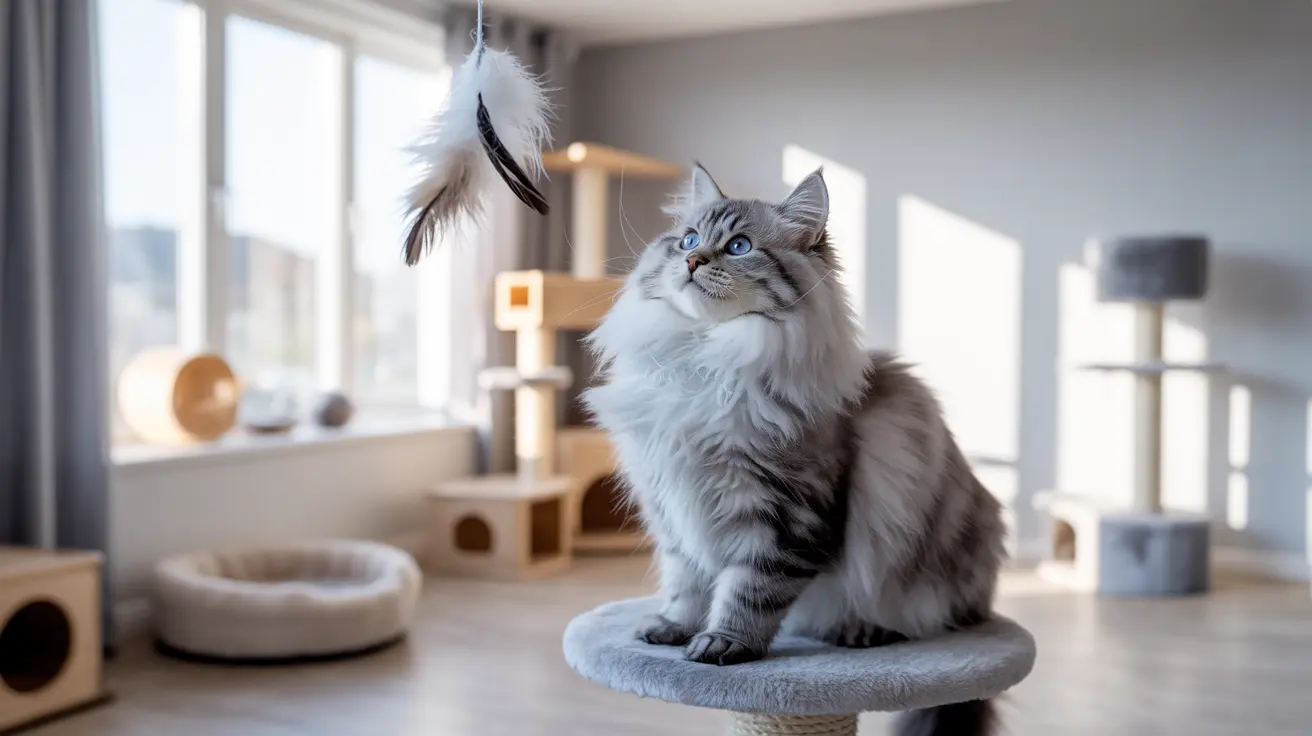If you've noticed your cat showing signs of urinary problems, stress might be the surprising culprit. While many cat owners assume their pet has a urinary tract infection (UTI), the reality is that stress-related urinary issues are far more common in cats than actual bacterial infections.
Understanding this connection between stress and urinary problems is crucial for every cat owner. Let's explore why stress affects your cat's urinary health and what you can do about it.
Understanding Stress-Related Urinary Issues in Cats
Stress doesn't directly cause bacterial UTIs in cats, but it can trigger a condition called Feline Idiopathic Cystitis (FIC) or broader Feline Lower Urinary Tract Disease (FLUTD). These conditions create symptoms that closely mimic those of a UTI, including frequent urination, straining to urinate, and blood in the urine.
Unlike true UTIs, which are relatively rare in healthy adult cats, stress-induced urinary problems are extremely common, especially in cats under ten years old. The condition occurs when stress triggers inflammation in the bladder through complex neurological pathways.
Common Triggers of Stress-Related Urinary Problems
Several environmental factors can trigger stress-related urinary issues in cats:
- Changes in household routine
- Moving to a new home
- Introduction of new pets
- Conflicts with other cats
- Changes in litter box location or type
- Modifications to feeding schedule
- Limited access to resources
- Loud noises or construction
Identifying Stress-Related Urinary Symptoms
Watch for these warning signs that might indicate your cat is experiencing stress-related urinary issues:
- Urinating outside the litter box
- Frequent trips to the litter box with little output
- Crying or straining while urinating
- Blood in the urine
- Excessive grooming of the genital area
- Increased aggression or hiding behavior
Prevention and Management Strategies
Managing stress-related urinary issues requires a multi-faceted approach:
Environmental Enrichment
- Provide multiple litter boxes (one more than the number of cats)
- Maintain clean, accessible litter boxes
- Create vertical spaces and hiding spots
- Offer interactive toys and puzzle feeders
Stress Reduction
- Use pheromone diffusers
- Maintain consistent daily routines
- Provide quiet spaces away from household activity
- Consider anxiety supplements recommended by your vet
Diet and Hydration
- Increase water intake through wet food
- Consider specialized urinary health diets
- Use water fountains to encourage drinking
- Place multiple water sources throughout the home
When to Seek Veterinary Care
While stress management is crucial, some situations require immediate veterinary attention. Seek emergency care if your cat:
- Cannot urinate at all
- Shows signs of extreme discomfort
- Has recurring episodes
- Develops behavioral changes
- Shows signs of depression or lethargy
Frequently Asked Questions
Can stress really cause urinary tract issues in cats, or are they just mistaken for UTIs?
Yes, stress can absolutely cause urinary tract issues in cats. While these problems are often mistaken for UTIs, true bacterial infections are relatively rare in healthy adult cats. Stress typically causes inflammation and functional changes in the bladder rather than infection.
What are the most common stressors that lead to urinary problems in cats, and how can I identify them?
Common stressors include changes in routine, new pets, moving homes, inter-cat conflict, and changes in litter box arrangement. Watch for changes in your cat's behavior, such as hiding more often or changes in eating habits, which might indicate stress.
How can I reduce stress in my cat to prevent urinary tract issues?
Maintain a consistent routine, provide multiple resources (litter boxes, food bowls, water sources), use pheromone products, create safe spaces, and ensure environmental enrichment through toys and climbing opportunities.
What are the key differences between stress-related urinary issues and true bacterial UTIs in cats?
Stress-related issues typically don't involve bacteria and won't respond to antibiotics. They're more common in younger cats and often coincide with environmental changes, while true UTIs are more common in older cats or those with underlying health conditions.
What are the best ways to manage and treat stress-induced urinary problems in cats, especially in multi-cat households?
Focus on providing adequate resources for all cats, maintaining clean litter boxes, reducing competition, using pheromone products, and considering specialized diets. In multi-cat homes, ensure each cat has access to their own resources and safe spaces.






